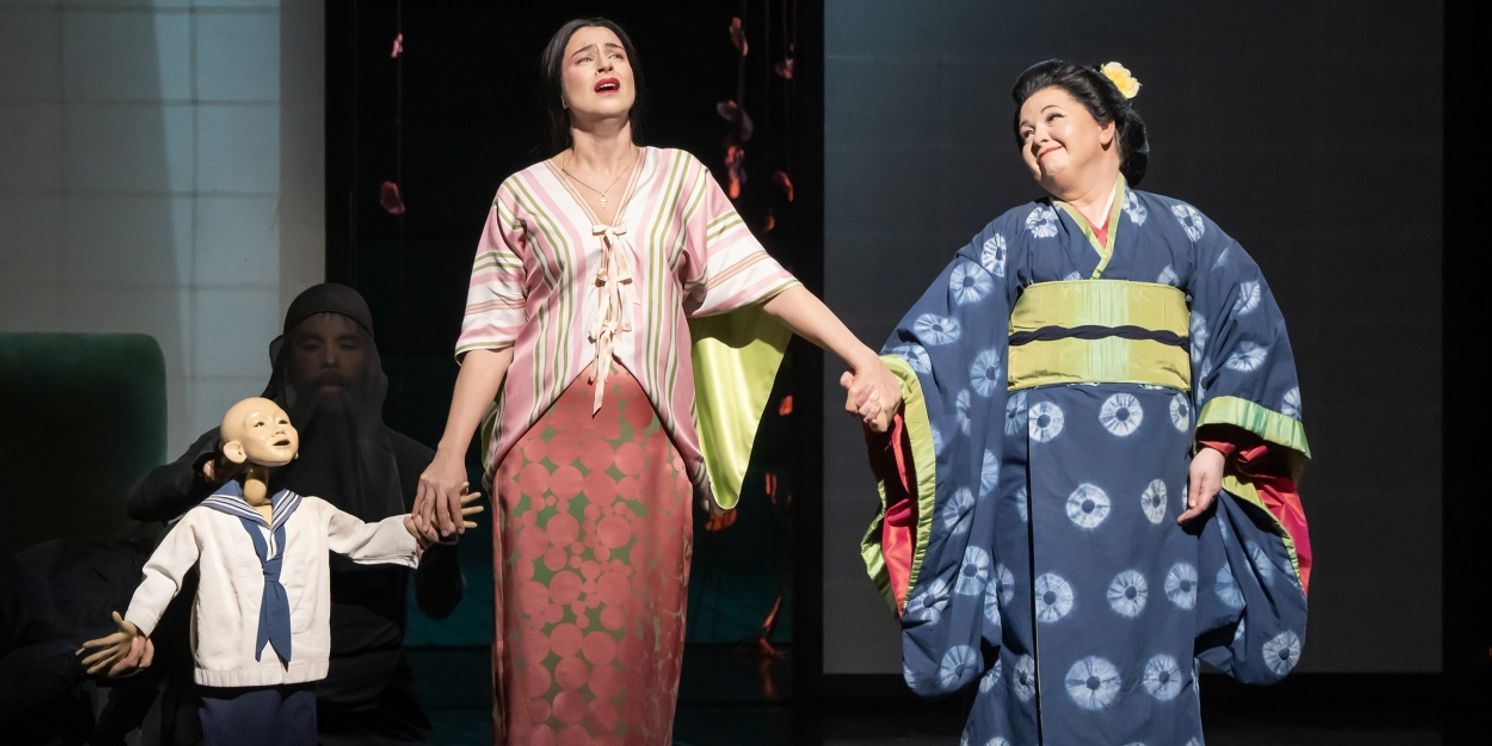Review: Dizzying Night at the Met with Grigorian's Splendiferous BUTTERFLY in House Debut
Minghella’s Gorgeous Production Plus Wonderful Cast Have Audience in their Thrall

Those of us who keep an eye on the comings and goings of singers at major opera houses around the world, have known that Friday’s debutant, Lithuanian soprano Asmik Grigorian, was going to be one to watch. And it was.
No worries about whether her voice would translate from Europe’s smaller houses to the Met’s enormous hall: Grigorian may have been singing Puccini’s Cio-Cio-San/Madama Butterfly this time around, but she’s a well-schooled Turandot and Lady Macbeth as well, bringing a notably large voice with her. She survived the Met’s notoriously short rehearsal time for revivals (particularly for the second cast of the season). Lastly, she even made it through the final curveball, when tenor Jonathan Tetelman became ill and standby Chad Shelton had to take over as Pinkerton; he did well considering the circumstances, but he was no match for her.
As Sondheim wrote in GYPSY, “You either got it or you ain’t. And, boys, she’s got it.”
Grigorian gave a performance people won’t forget, even if she didn’t look like she was 15. Every aspect of her performance built toward the climax of the opera: Perhaps she’s more of a take-charge Butterfly than usual, one whose lush voice sounded like she’s nobody’s victim even if she was hopelessly in love. But she took hold of Puccini’s breathtaking score and squeezed every bit of love and pathos from it, understanding full well that she had to break hearts at the end of the piece as she readied herself for the return of her husband and waited for him. And waited. And waited. And waited…to be jilted by this man she loved, even when she was the only one left who believed in his return.
And when his ship finally arrived in the harbor, she kept believing even when he didn’t arrive at her door, a hope against hope. When she found he had remarried, she kept believing in her love, even if it meant giving up her child to his father. (There’ll be no shared custody here.) And, of course, there was her ritual suicide, filled with blood and remorse, that ends the opera. It was devastating. There wasn’t a dry eye anywhere near me.
Mezzo Elizabeth De Shong was beyond fine as Suzuki, trying to keep Butterfly based in reality, while fully believing that there will be no happy ending for her. She was tough, though caring, and you had the feeling she might have thrown a left hook and taken Pinkerton down as the opera neared the end though she was the shoulder Butterfly could lean on, if necessary. As Sharpless, the American consul, baritone Lucas Meacham showed off smart acting and a beefy voice that often seemed too loud, particularly in contrast to Shelton’s sometimes too low-key Pinkerton. This may have been partially the fault of conductor Xian Zhang’s chosen dynamics for the performance, which were off. (She was also a debutant.)
Of course, every time the Met takes out the production, it reminds us how much the opera company lost in Anthony Minghella’s premature death, for he was someone who seemed to love what he was doing on stage, rather than those who’ve found it necessary to distract us from the art in front of us.
This production has been one of the Met’s stars, making the evening magic through the work of director/choreographer Carolyn Choa, the scenic design of Michael Levine, lighting of Peter Mumford and costumes of Han Feng. One can’t forget the contributions that the puppetry of Blind Summit Theatre make to the evening’s success, particularly with the character of Butterfly and Pinkerton’s child, Sorrow, here a puppet rather than a real child (though it was easy to forget he wasn’t), brought to life by Kevin Augustine, Tom Lee and Jonothan Lyons.
The season’s final run of MADAMA BUTTERFLY will continue through the May 11 matinee, which will be broadcast in the Met’s Live in HD series and on the Met’s Toll Brothers Radio Network. For more information about the opera and tickets, please see the Met’s website.
Caption: (l to r) "Sorrow," Asmik Grigorian and Elizabeth DeShong.
Photo: Jonathan Tichler/Met Opera
Reader Reviews
Videos

